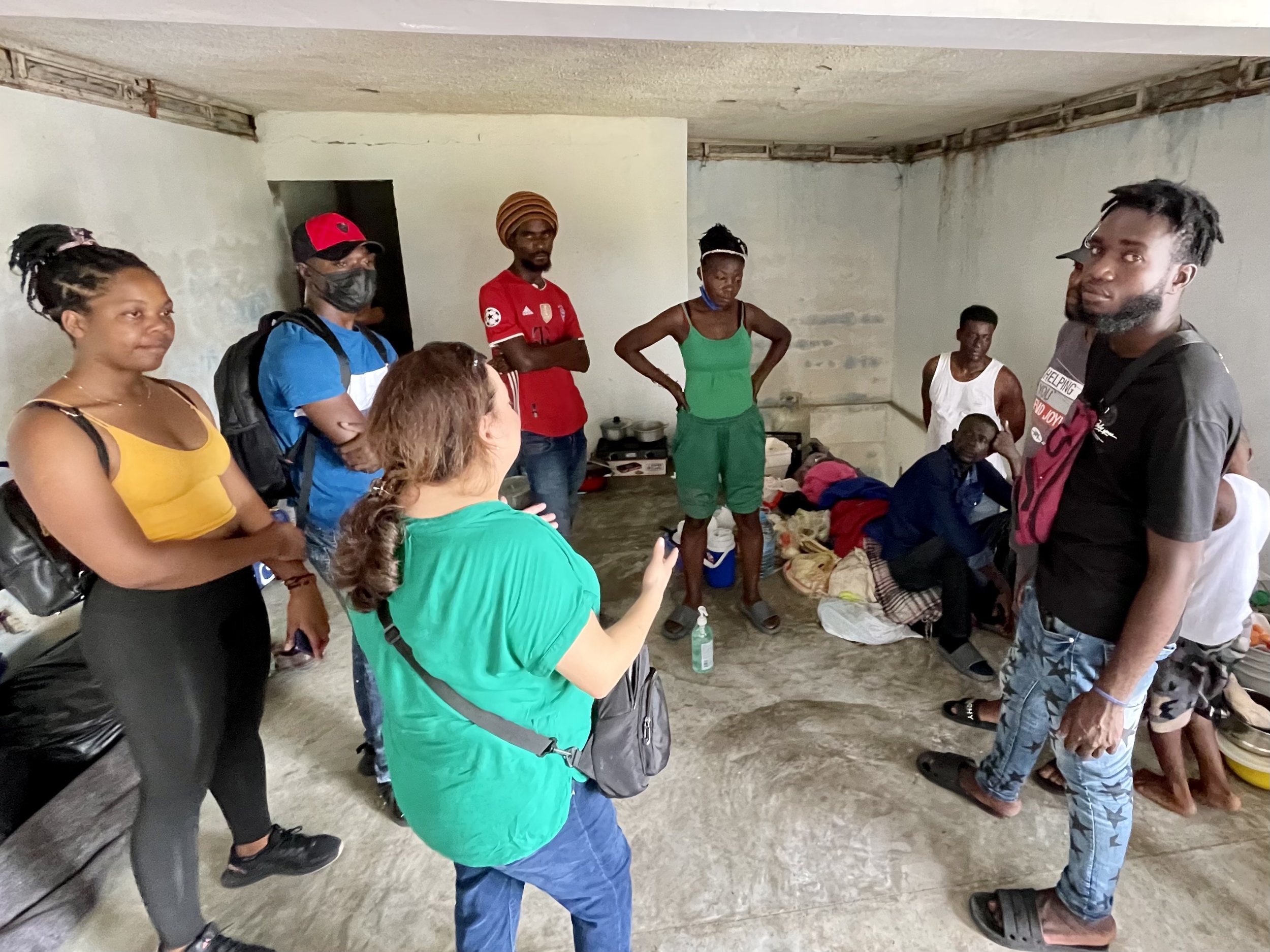Haiti is not on the border
By Anyra Cano
Last time I checked, Haiti was not on the border of Texas.
I was born and raised on the border, in El Paso, TX. My parents are immigrants from Mexico, so traveling to the neighboring city of Cd. Juarez and into Mexico was very normal to me.
I’ll never forget waiting in the car for hours to cross back to El Paso. The trips back were filled with dismay, as the bridge was filled with children begging for money or selling candy or souvenirs. It was a reality that always disturbed me but taught me empathy and compassion. It was always an opportunity for my parents to teach us about our privileges, despite the fact that we were a low-income family.
From a very early age, I was also exposed to the very impoverished colonia of Anapra. Anapra sits on the outskirts of Cd. Juarez. At that time, families had no running water, they lived under tarps and scraps of wood. I either helped translate for mission groups who ministered there, or my father would take us to share our unused toys and clothing with others.
Since my time in El Paso, I have always had the privilege of being surrounded by a global community. I have known people of many different cultures and countries. Early in my career, I coordinated and led mission trips to orphanages in Guatemala and Peru. I spent many days with children and teens, who endured trauma and other hardships.
For the past fourteen years, my husband and I have pastored a church in Fort Worth, a church that is made up of Latinos from all over Latina America. Many arrived in our country on a very difficult or haunting journey.
I have been a witness of many stories of those who flee their countries in need of new opportunities and help. I know these stories well. Nevertheless, in my prayers, I always ask that God never allow me to stop feeling compassion or empathy.
Last week, our staff traveled to the southern border. I thought I knew what I was going to see. I didn’t think I would find anything that surprised me or see anything I have never seen. But I did, and since then, I have cried out to God, brokenhearted, and distraught for what I encountered.
There is so much to share, and I will eventually share more, but for now, I will begin with what surprised me the most.
One evening, in Reynosa, as we walked around a make-shift encampment with thousands of Haitians, I forgot I was in Mexico and not Haiti. It brought back flashbacks of images I saw on TV after hurricanes and earthquakes that have slammed Haiti. There were tents that were hardly standing, filled with families, children who cried, played and were curious about us. There were also pregnant women, who wore the burdens of worry and fear of what was to come.
They are waiting for an opportunity to enter an established shelter. These shelters offer them daily food, and a safer wait. Most importantly, for them, it offers the opportunity to be added to the list of those who can present themselves seeking asylum at the U.S. side of the border, before U.S. Customs and Border Patrol (CBP) officers.
For three days, we encountered Haitians who were hungry, anxious, and fearful. We were told that Haitians didn’t have the same opportunities as other migrants waiting on the border. The majority do not speak Spanish, much less English, making it so difficult to use their voice. Those who do speak it become community leaders and advocate on behalf of their fellow Haitians.
Unfortunately, Haitians face more trauma in the form of discrimination and racism on both sides of the border. Finding medical help is almost impossible for them, and the number of Haitians who are allowed to present themselves for asylum at the U.S. side of the border is much smaller than for other groups.
In one shelter in Nuevo Laredo, a group of Haitians who have become leaders asked to speak to us. They began to ask for help, not so much for themselves, but for their friends and the most vulnerable in that shelter.
When there was no running water, those who were plumbers in their home country, made a plan. They asked all who could pitch in to help so everyone could have running water. The same happened with the electricity. There was camaraderie, concern, love, and advocacy happening. It was beautiful.
They continued to tell us about a woman at the shelter who is pregnant, who was bleeding in her womb. They took her several times to the doctor and hospital, and she kept getting turned away. They could not find help for her (including the pastor who works on behalf of them).
Then they asked, “Can you please take her with you to the USA, please have the USA help her.”
—This crushed me. I did everything in my power not to cry in front of them.
I did want to take her with me, but it was impossible and telling them that we couldn’t bring her angered me. I cannot fathom the thought of not finding help for my dark-skinned daughter because of the color her skin.
I have witnessed lots of pain and heard many stories. Yet, I am overwhelmed as I remember the stories of the Haitian refugees whose skin color and lack of language create another layer of barriers in their search for safety.
God is stirring something within me, and it affirms my new role at Fellowship Southwest. So, I share this story, in hopes that you will join me in prayer for refugees on the border, and particularly for Haitian refugees. I hope God will stir your heart too and move us to action.
Anyra Cano is the director of programs and outreach for Fellowship Southwest.



